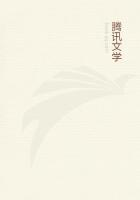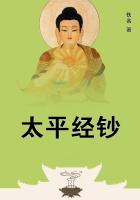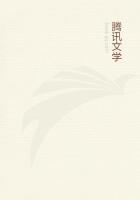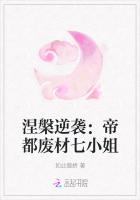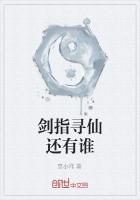"What is it?"
"Jean-Jacques inherits everything from his father, even the Rabouilleuse."
"Don't you suppose the old doctor was wicked enough to provide a ruler for his son?"
"Rouget has got a treasure, that's certain," said everybody.
"She's a sly one! She is very handsome, and she will make him marry her."
"What luck that girl has had, to be sure!"
"The luck that only comes to pretty girls."
"Ah, bah! do you believe that? look at my uncle Borniche-Herau. You have heard of Mademoiselle Ganivet? she was as ugly as seven capital sins, but for all that, she got three thousand francs a year out of him."
"Yes, but that was in 1778."
"Still, Rouget is ****** a mistake. His father left him a good forty thousand francs' income, and he ought to marry Mademoiselle Herau."
"The doctor tried to arrange it, but she would not consent; Jean-
Jacques is so stupid--"
"Stupid! why women are very happy with that style of man."
"Is your wife happy?"
Such was the sort of tattle that ran through Issoudun. If people, following the use and wont of the provinces, began by laughing at this quasi-marriage, they ended by praising Flore for devoting herself to the poor fellow. We now see how it was that Flore Brazier obtained the management of the Rouget household,--from father to son, as young Goddet had said. It is desirable to sketch the history of that management for the edification of old bachelors.
Fanchette, the cook, was the only person in Issoudun who thought it wrong that Flore Brazier should be queen over Jean-Jacques Rouget and his home. She protested against the immorality of the connection, and took a tone of injured virtue; the fact being that she was humiliated by having, at her age, a crab-girl for a mistress,--a child who had been brought barefoot into the house. Fanchette owned three hundred francs a year in the Funds, for the doctor made her invest her savings in that way, and he had left her as much more in an annuity; she could therefore live at her ease without the necessity of working, and she quitted the house nine months after the funeral of her old master, April 15, 1806. That date may indicate, to a perspicacious observer, the epoch at which Flore Brazier ceased to be an honest girl.
The Rabouilleuse, clever enough to foresee Fanchette's probable defection,--there is nothing like the exercise of power for teaching policy,--was already resolved to do without a servant. For six months she had studied, without seeming to do so, the culinary operations that made Fanchette a cordon-bleu worthy of cooking for a doctor. In the matter of choice living, doctors are on a par with bishops. The doctor had brought Fanchette's talents to perfection. In the provinces the lack of occupation and the monotony of existence turn all activity of mind towards the kitchen. People do not dine as luxuriously in the country as they do in Paris, but they dine better; the dishes are meditated upon and studied. In rural regions we often find some Careme in petticoats, some unrecognized genius able to serve a ****** dish of haricot-beans worthy of the nod with which Rossini welcomed a perfectly-rendered measure.
When studying for his degree in Paris, the doctor had followed a course of chemistry under Rouelle, and had gathered some ideas which he afterwards put to use in the chemistry of cooking. His memory is famous in Issoudun for certain improvements little known outside of Berry. It was he who discovered that an omelette is far more delicate when the whites and the yolks are not beaten together with the violence which cooks usually put into the operation. He considered that the whites should be beaten to a froth and the yolks gently added by degrees; moreover a frying-pan should never be used, but a "cagnard" of porcelain or earthenware. The "cagnard" is a species of thick dish standing on four feet, so that when it is placed on the stove the air circulates underneath and prevents the fire from cracking it. In Touraine the "cagnard" is called a "cauquemarre."
Rabelais, I think, speaks of a "cauquemarre" for cooking cockatrice eggs, thus proving the antiquity of the utensil. The doctor had also found a way to prevent the tartness of browned butter; but his secret, which unluckily he kept to his own kitchen, has been lost.
Flore, a born fryer and roaster, two qualities that can never be acquired by observation nor yet by labor, soon surpassed Fanchette. In ****** herself a cordon-bleu she was thinking of Jean-Jacques's comfort; though she was, it must be owned, tolerably dainty.
Incapable, like all persons without education, of doing anything with her brains, she spent her activity upon household matters. She rubbed up the furniture till it shone, and kept everything about the house in a state of cleanliness worthy of Holland. She managed the avalanches of soiled linen and the floods of water that go by the name of "the wash," which was done, according to provincial usage, three times a year. She kept a housewifely eye to the linen, and mended it carefully. Then, desirous of learning little by little the secret of the family property, she acquired the very limited business knowledge which Rouget possessed, and increased it by conversations with the notary of the late doctor, Monsieur Heron. Thus instructed, she gave excellent advice to her little Jean-Jacques. Sure of being always mistress, she was as eager and solicitous about the old bachelor's interests as if they had been her own. She was not obliged to guard against the exactions of her uncle, for two months before the doctor's death Brazier died of a fall as he was leaving a wine-shop, where, since his rise in fortune, he spent most of his time. Flore had also lost her father; thus she served her master with all the affection which an orphan, thankful to make herself a home and a settlement in life, would naturally feel.

